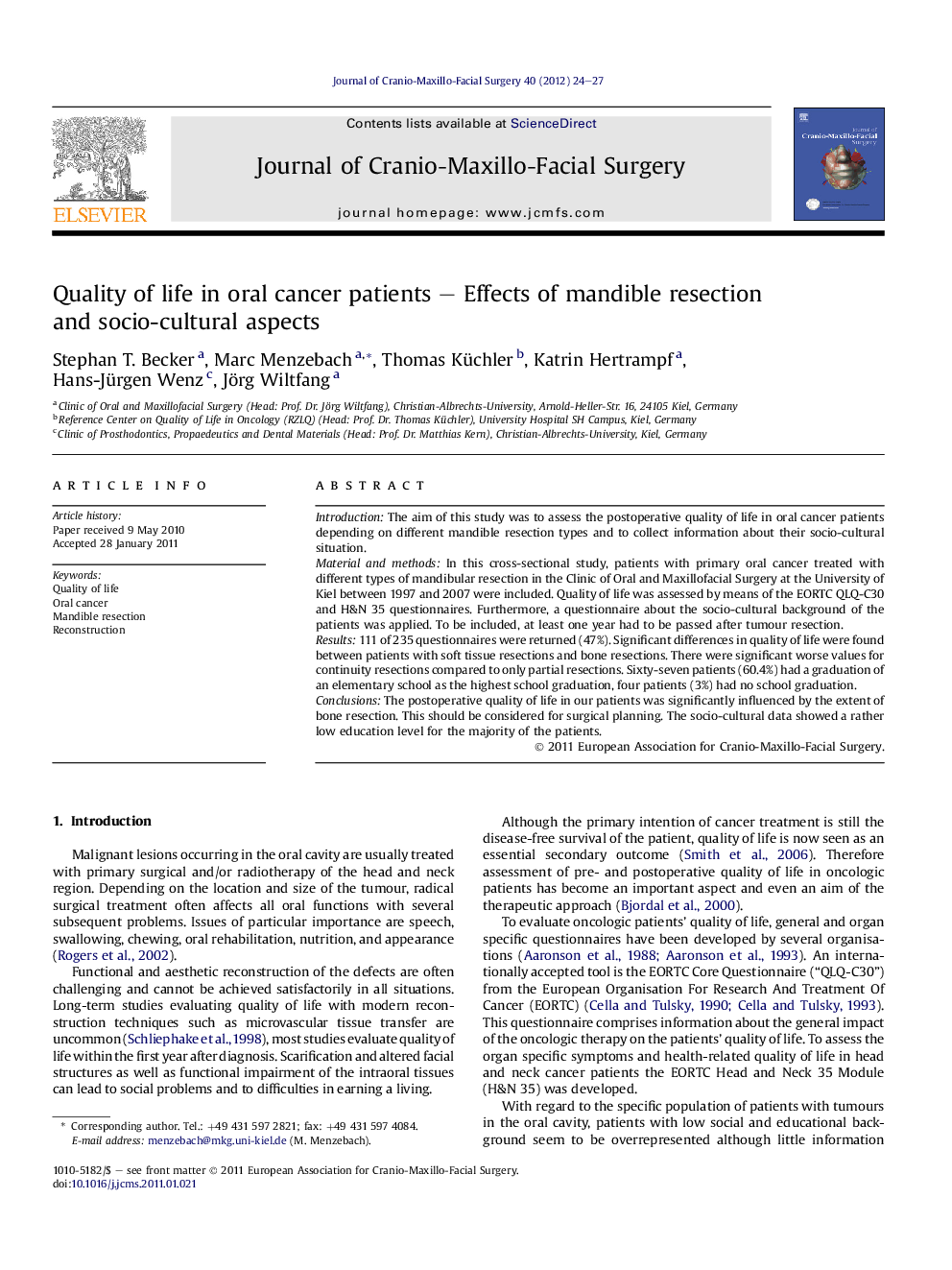| Article ID | Journal | Published Year | Pages | File Type |
|---|---|---|---|---|
| 3143649 | Journal of Cranio-Maxillofacial Surgery | 2012 | 4 Pages |
IntroductionThe aim of this study was to assess the postoperative quality of life in oral cancer patients depending on different mandible resection types and to collect information about their socio-cultural situation.Material and methodsIn this cross-sectional study, patients with primary oral cancer treated with different types of mandibular resection in the Clinic of Oral and Maxillofacial Surgery at the University of Kiel between 1997 and 2007 were included. Quality of life was assessed by means of the EORTC QLQ-C30 and H&N 35 questionnaires. Furthermore, a questionnaire about the socio-cultural background of the patients was applied. To be included, at least one year had to be passed after tumour resection.Results111 of 235 questionnaires were returned (47%). Significant differences in quality of life were found between patients with soft tissue resections and bone resections. There were significant worse values for continuity resections compared to only partial resections. Sixty-seven patients (60.4%) had a graduation of an elementary school as the highest school graduation, four patients (3%) had no school graduation.ConclusionsThe postoperative quality of life in our patients was significantly influenced by the extent of bone resection. This should be considered for surgical planning. The socio-cultural data showed a rather low education level for the majority of the patients.
